It's a constant source of both delight and bewilderment to me that for a country where turmoil would represent some sort of stability, it's Italy that has produced some of the finest Progressive Rock on the planet. Perhaps some eminently qualified sociologist might eventually come up with a plausible explanation as to why other similarly volatile Mediterranean nations have to date bequeathed only Julio Iglesias, Nana Mouskouri and Demis Roussos by way of recompense. (The latter trio I'm sure we might agree, represent a crippling 1st world debt sufficient to have cultural attaches seeking the protection afforded by filing for bankruptcy)
With three highly lauded studio albums behind them
Banco were at or very near their creative peak when this concert performance was captured in Salerno, Italy in 1975. First of all the recording quality is pristine and you could be forgiven for doing a double take at the sleeve just to check it wasn't recorded 10 years later. Every single nuance of the playing and dynamics is captured faithfully here right down to the drummer's individual hi-hat strokes and apart from Cook by PFM there are precious few other documents attesting to the potency of the RPI heavyweights in the live realm.(I swear you can hear Pierluigi Calderoni's bum squeaking on his drum stool between tracks)
Prog bands with two keyboard players are rarer than penniless lawyers and apart from
Greenslade and
Ange I can't think of any other instances that spring readily to mind. The Nocenzi brothers clearly state their specialities from the outset with Vittorio covering organ, synths and string pads while Gianni's contribution is that of acoustic and electric pianos. If that were not sufficient enticement for y'all,
Banco also provide at various junctures some alternately jazzy and ambient clarinet, flute and trumpet to add yet more textural diversity to an already heady mix. These reed passages conjure up the aura of an intimate baroque chamber music which sits quite appropriately as effective contrast to the surrounding electronic mayhem this group are more than capable of delivering. The band also exploit the medieval flavour of the harpsichord to authentic and quaint effect. I cannot help but envisage a stately procession in some provincial outpost of the Mezzogiorno replete with grimed pageantry when I hear Traccia II (all that's missing to complete this indolent day-dream is flag waving peasants at the roadside cheering the assembly along)
Had Placido Domingo strayed out of youthful curiosity into a groovy Rome watering hole circa 1969 and had his neat orange cordial spiked by some unscrupulous roadies, the night might have ended either in a Carabinieri baton charge or a glimpse of the future Francesco Di Giacomo. This critter has the voice of an angel trapped in the unprepossessing physique of a derelict tubby leprechaun. These are tonsils that make even rivet eating welders, tax accountants and rugby players weep unashamedly. Our Francesco is tantamount to the living embodiment of the 'Italian melodic tradition' that
Banco preserve jealously in their otherwise healthy disavowal of the yoke of the past. Although he is clearly a trained diaphragm singer, the oft quoted 'operatic' tag is rather wide of the mark hereabouts as the classical flavour is but textural only i.e. he phrases and enunciates like a Mediterranean folk singer at heart. If you listen to the slowly building climax to
RIP circa 5 minutes in you are witness to nothing less than white European soul music every bit as emotive, heartfelt and legitimate as that emanating from Smokey Robinson, Marvin Gaye, Al Green et al. I seem to have spent a large part of my formative years reading the gutless passive racism of white music journalists who would sully such comparisons as part of a lazy agenda to demarcate soulfulness as a tourist attraction. Framed within Gianni Nocenzi's exquisitely beautiful piano accompaniment it's the sound of this voice that stirs the human heart, not the lyrics whether they be in halting English or the fluent nurturing mother tongue of the singer. That's what soul music is and it's here in spades.
I suspect that of the two Nocenzi brothers, it's Gianni that pushes
Banco to their avant oriented limits the most as his playing betrays the influence of Bartok, Gulda, Ginastera, 'astringent' Emerson, Stravinsky, Loussier and even some of the ideas of John Cage. This dude is a phenomenon Prog lovers and whether it's bluesy jazz licks, tonal clusters, understated harmonic support or plain vanilla ivory GBH yer wanting, Gianni delivers every time. Check out his lengthy solo on Metamorfosi which undergoes a punning transitional mutation from eastern European folk modes via a splendid imitation of what the instrument would resemble if filled with ping pong balls via a delay effect until its terrifying violent climax where he strips the piano's percussion family tree with an Oedipal fury that must represent a landmark in 'sphincter tightening' moments in Prog. Prepared piano is one thing but woe betide the unprepared listener who is in for a very unnerving and bumpy ride full of spooks, shocks, spills and chills sufficient to require the healing and redemptive power available from so much of the stirring music on this album.
La Danza dei Grandi Retilli is probably my favourite
Banco instrumental and encapsulates pretty much everything endearing about the whole RPI genre. From the Jaques Loussier jazz injected Bach intro to an indelible synth theme and ever onwards to pulsing hypnotic rock that somehow still leaves sufficient room to allow for some angular chromatic detours and swinging jazz improvisation that would put many 'full timers' in the fusion genre to shame.
On more than one occasion on this record
Banco manage to coax a timbre out of the humble clarinet that comes to resemble an alien (but very musical) foghorn. Take heed of this seductive baritone siren during the intro to Dopo Niente a Piu Lo Stasso and marvel at such invention.
I also much prefer the subtle guitar work of the 'new boy' Rodolfo Maltese compared to his predecessor Marcello Todaro whose rather strident and fizzy tone wedded to a lack of dynamic nous spoiled parts of the excellent trio of studio albums he appears on. Rodolfo is much more in the 'team player' mould with his electric solos being well paced and economic while he reveals a particular flair for understated but telling acoustic contributions be they intricate finger picking during the quieter passages or deft chordal strumming behind massed vocals. Perhaps the only blot on Roberto D'Angelo's copybook is that he does occasionally betray himself as an inveterate rawker imitating a walking bass-line on the up-tempo jazzy excursions.
What flaws there are on this fine album are mercifully small and forgiveable e.g. Metamorfosi has now bulged to a stamina sapping 27 minutes from its original modest 11 minute span as heard on the début album. Gianni Nocenzi's aforementioned piano extravaganza and a short and brilliantly 'catchy' drum solo are clearly the main additions but there are also some rather flaky bald patches where the lads do appear to be a bit too fond of 'weird' arresting textures as if they were an end in themselves. Similarly the strum-along folksy bonhomie of Non Mi Rompete although pretty appears a tad incongruous when sandwiched between the other more challenging material on offer. Perhaps this traditional number is an example where
Banco for once fail to assimilate their indigenous roots into their habitual prog vocabulary?
For those unsure where to start with RPI they could do a lot worse than begin here with quite possibly the best example we have to date of one of the Italian giants 'caught in the act' of creating, enhancing and disseminating an entire musical legacy.

 Banco Del Mutuo Soccorso : Seguendo Le Tracce
Banco Del Mutuo Soccorso : Seguendo Le Tracce










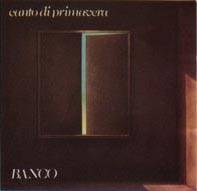
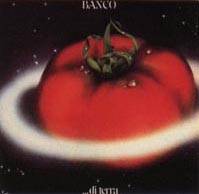
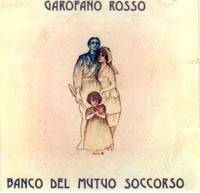
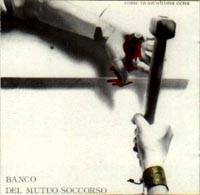
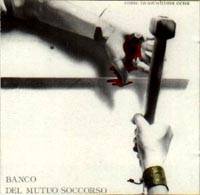
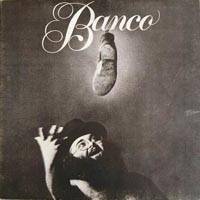
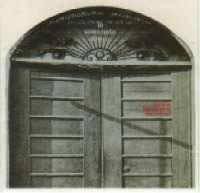

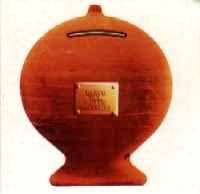
Du mußt eingeloggt sein um einen Kommentar zu schreiben